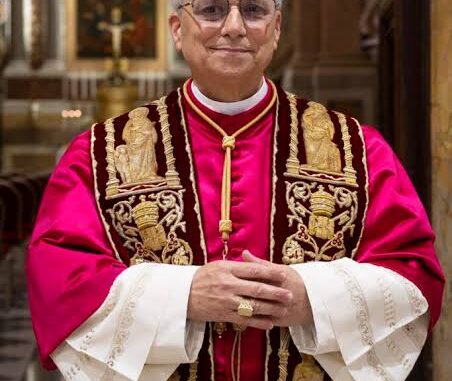
Pope Raises Alarm Over Growing Concerns About Religious Hostility in the U.S.
In a message that has sparked international conversation, Pope Francis has voiced renewed concern about what he described as “growing cultural hostility and pressures faced by Christians” in several parts of the world, including the United States. While the Pontiff did not cite specific incidents, his remarks—delivered during a Vatican address focused on global religious freedom—were interpreted as a caution against rising polarization and the erosion of respect for faith-based expression in modern societies.
Speaking to diplomats and religious leaders at the Apostolic Palace, Pope Francis emphasized that religious liberty remains a fundamental human right, warning that subtle forms of social and institutional pressure can become precursors to more serious forms of discrimination. “Persecution does not always begin with violence,” he said. “It can start with ridicule, exclusion, or the silencing of conscience. Wherever believers feel they must hide their faith to participate fully in public life, society loses something essential.”
Analysts note that the Pope’s message comes at a time when debates about religion’s role in American public life have intensified. Issues surrounding freedom of speech, workplace expression, policy disputes, and the boundaries of religious conscience have generated passionate arguments across political lines. Although the United States remains one of the world’s most constitutionally protective environments for religious practice, the Vatican has been monitoring global trends that suggest increasing tension between secular and faith-based institutions.
In his address, Pope Francis avoided framing the situation as a crisis but encouraged governments—especially those in stable democracies—to act proactively to safeguard religious pluralism. “Diverse societies must protect not only the right to worship,” he continued, “but also the right to live one’s faith openly, without fear of social retaliation.”
Reactions to his comments in the U.S. have varied. Faith leaders welcomed the Pope’s words, arguing that Christian communities increasingly feel pressured to self-censor beliefs that diverge from mainstream cultural attitudes. Some pointed to public controversies surrounding religious expression in education, business, and media as evidence of an environment where Christians sometimes face marginalization.
Civil liberties advocates, meanwhile, interpreted the Pope’s remarks as a broader call for mutual respect rather than a condemnation of any particular country. They emphasized that concerns about religious freedom must be balanced with protections for other rights, such as equality and non-discrimination. “This should be seen as an invitation to strengthen dialogue, not as an accusation,” one analyst commented.
International observers noted that the Pope’s statement fits a recurring theme of his papacy: cautioning against all forms of intolerance—religious, ethnic, political, or ideological—and urging communities to resist the temptation to label or stigmatize one another.
As global attention turns to how nations address freedom of belief amid rapid cultural change, Pope Francis reiterated that societies flourish when they allow space for diverse convictions. “A peaceful future,” he concluded, “depends on our ability to see one another not as threats, but as neighbors.”
Leave a Reply